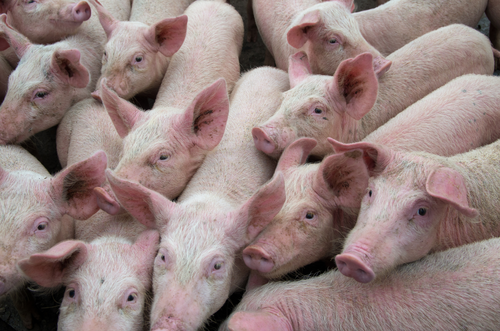
The U.S. Department of Agriculture’s (USDA) Foreign Animal Disease Diagnostic Laboratory recently confirmed African swine fever (ASF) in samples collected from pigs in the Dominican Republic through an existing cooperative surveillance program. Professor John Deen in the College of Veterinary Medicine weighs in on ASF’s impact and potential threats to local and national farmers.
John Deen, Ph.D.
“The concerns are twofold. Pigs remain a source of income, wealth and food for these Dominican farmers, and this is threatened by ASF. The livelihood of American farmers is also threatened, not only by direct effects of the disease, but also by the restrictions on international trade if it would be found in the U.S.
“ASF’s impact is causing a major realignment of animal agriculture. It has previously spread throughout China and neighboring countries, resulting in severe losses due to the disease and efforts in controlling its spread. It has recently been diagnosed in pig farms in Germany and this diagnosis in the Dominican Republic, and potentially neighboring countries, marking a troubling geographic spread.
“Rebuilding and reforming swine farming not only takes time, but also a transformation in the ways that pigs are reared, with an emphasis on biosecurity. The University of Minnesota's College of Veterinary Medicine leads in the area of securing herds from the introduction of diseases, including ASF, and is working to identify methods to protect pigs, pig farmers and dependent communities. It needs to be emphasized that ASF is a disease that is limited to pigs and does not infect people.”
John Deen is a professor in the College of Veterinary Medicine at the University of Minnesota. His expertise includes swine health and welfare, epidemiology of swine diseases, in both the U.S. and other pig-producing countries.
Contact information
John Deen
[email protected]
612 424-2558 (c)
About the College of Veterinary Medicine
The University of Minnesota College of Veterinary Medicine affects the lives of animals and people every day through educational, research, service, and outreach programs. Established in 1947, the University of Minnesota College of Veterinary Medicine is Minnesota’s only veterinary college. Fully accredited, the college has graduated over 4,000 veterinarians and hundreds of scientists. The college is also home to the Veterinary Medical Center, the Veterinary Diagnostic Laboratory, the Leatherdale Equine Center and The Raptor Center. To learn more, visit vetmed.umn.edu.
-30-
- Categories:
- Agriculture and Environment
- Animals





